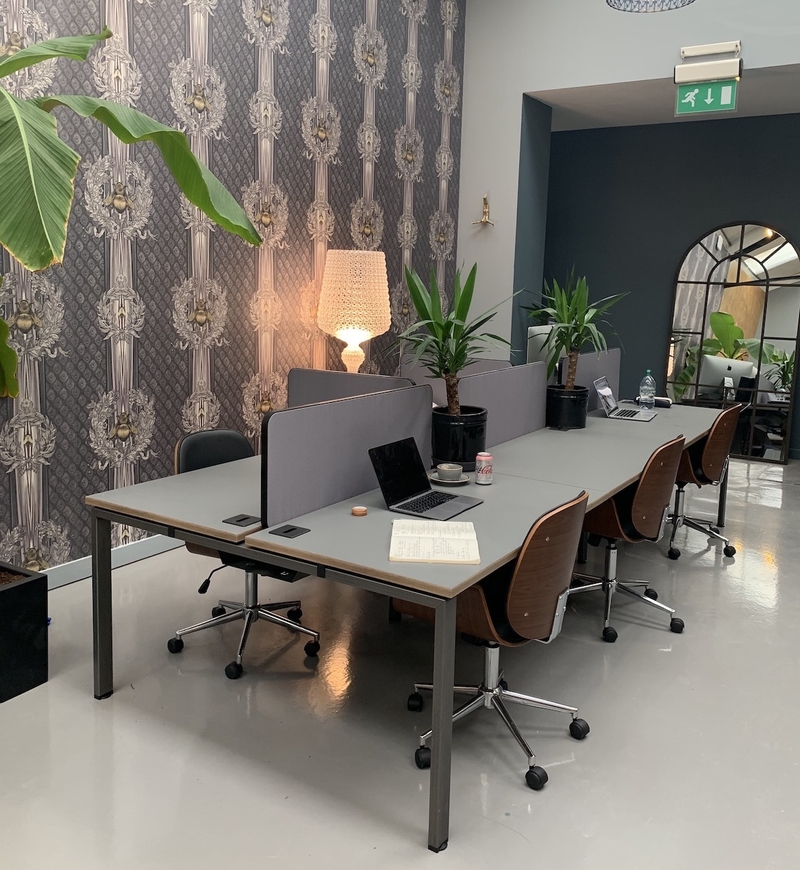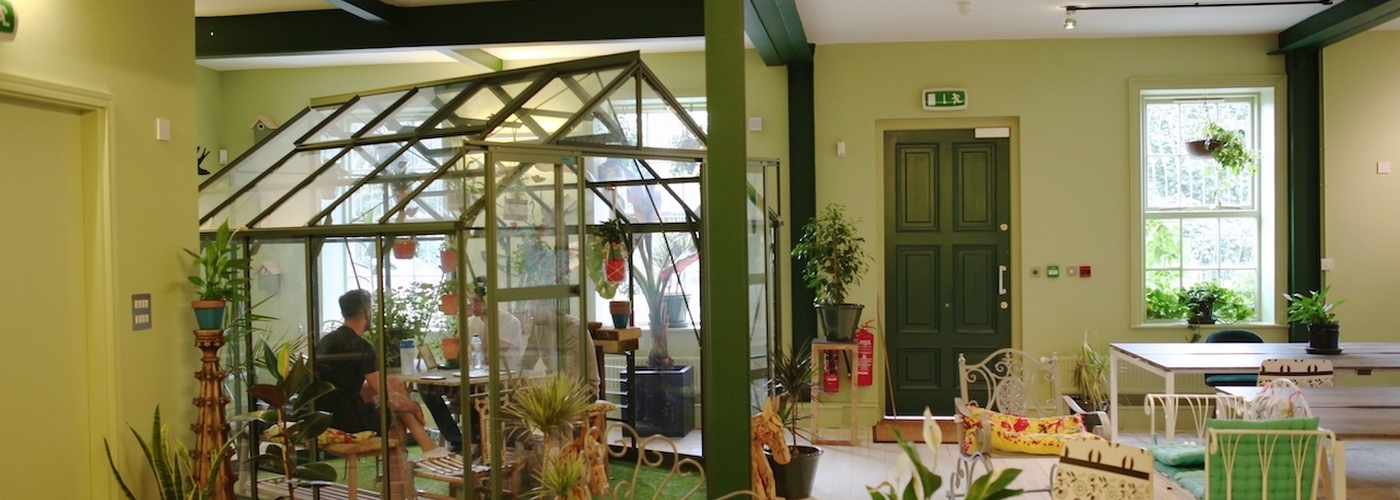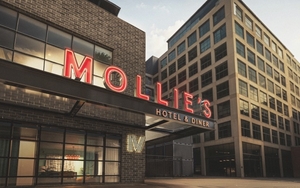The seed has been planted and it seems like it is definitely continuing to grow…
After years of hard-working staff grafting sullenly away in dark windowless offices, or under the sterile glare of harsh strip lighting, many employers are cottoning on to the benefits of biophilic design.
Living walls, plants and fanciful foliage are popping up in flexible spaces and offices up and down the city in a bid to fight back against the inevitable disconnect from nature that city living brings. Rows of cacti jostle for attention on windowsills, cheese plants stand proudly in well-lit corners and ivy creeps stealthily down from office shelving. So what's it all about?
Biophilic design aims to bring natural light, green spaces and organic materials in to the workplace to bring back the sense of calm
Urban sprawl is a product of modern life and contemporary buildings are designed in a way that separates us from the natural world. In terms of the workplace this can result in a whole heap of stress and health problems. In short, sitting in an airless office seven hours a day and barely seeing the light of day, or anything green, isn't good for you – at all.

Biophilia refers to the ‘love of life or living systems’ and was first used by social psychologist Erich Fromm in describing the attraction to all things alive and vital. Biophilic design aims to bring natural light, green spaces and organic materials in to the workplace to bring back the sense of calm and bonhomie a good old romp in the countryside can induce, even if in reality you are chained to a desk in the city centre.
The idea that adding a touch of outdoors to the indoors can massively increase a sense of calm and well being, inspired husband and wife team David and Susan Walter to open Use.Space - a co-working hub, focusing on sustainability and member engagement.
Use.Space in Ardwick blooms with gorgeous greenery everywhere you turn, boasting no fewer than 600 plants in a light-filled botanical atrium. Potted plants adorn almost every surface area and blend in with the mellow green hues of the walls and furnishings, all flooded with natural light. Rather than sitting at a desk, you can pull up a seat in a greenhouse, surrounded by beautiful botanics - and the fact it directly faces a park doesn’t exactly go amiss either.
David is bursting with optimism about his new venture. "Sustainability and wellbeing are key priorities for us too and we are employing biophilic design incorporating elements of nature, plants and the outdoors. Plus, all our cutlery, plates, coffee cups and straws will be 100 per cent plant-based and compostable and we’ll be running regular sustainability activities to inspire our members to ensure we all do our bit for the environment.
"I think for us the link is that co-working spaces are normally filled with SMEs who work long-hours and alone. Use.Space offering a space that has over 600 plants contributes to the well being of the members, and of course appeals to both sight and smell - and a happier workspace means more conducive working."
Like the ivy working its way up the ceiling, traces of biophilia are creeping in to flexible working space Work.Life on Brown Street, which incorporates a living wall and pockets of greenery to evoke a sense of calm as you enter its glass fronted doors just off from the hustle and bustle of Market Street. Elsewhere plants pop up on coffee tables, prop up piles of books and peek out endearingly from shelving.
Co-working community altspace has introduced soft woods including birch and beech in to their desks and finishes as well as introducing more plants. Biophilic design is also to be incorporated in to 2020 plans for a workspace at Bruntwood Works’ 111 Piccadilly to create a healthy, productive workplace. Internal planting and greenery is to be displayed throughout along with enhanced natural lighting and the use of natural materials.
A striking green portal is being designed and an external garden is being created outside the reception doors with trees planted in partnership with City of Trees.
Dr Gina Cavan, senior lecturer in geography at Manchester Metropolitan University agrees biophilia can improve not only your working life, but your mental health.
"Vegetation such as trees, shrubs, grass and flowers are particularly important in cities,’ she says, ‘because they provide us with many health and wellbeing benefits including increased life expectancy, reduced health inequality and improved psychological health and wellbeing. So recreating a sense of this indoors can be vitally important."
With more and more offices adopting this approach, could we see a biophilic boom in the years ahead? Watch this (green) space….
















